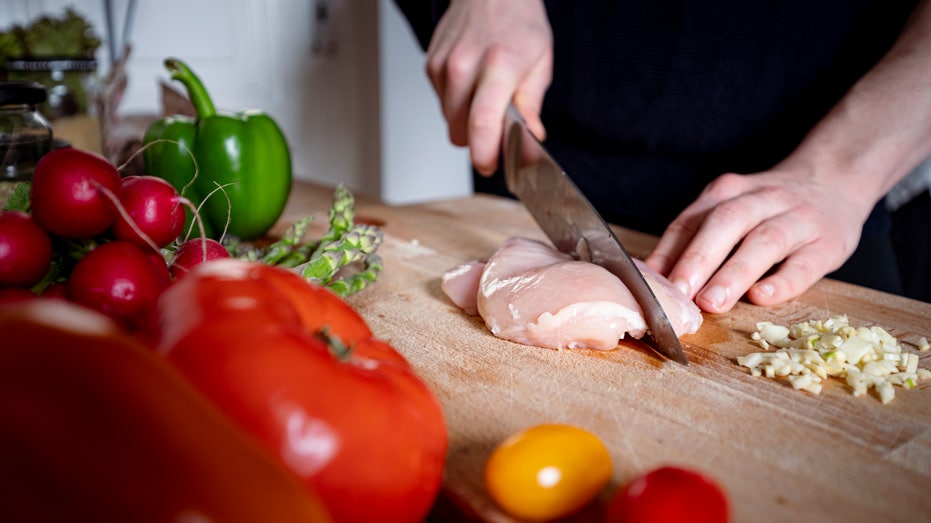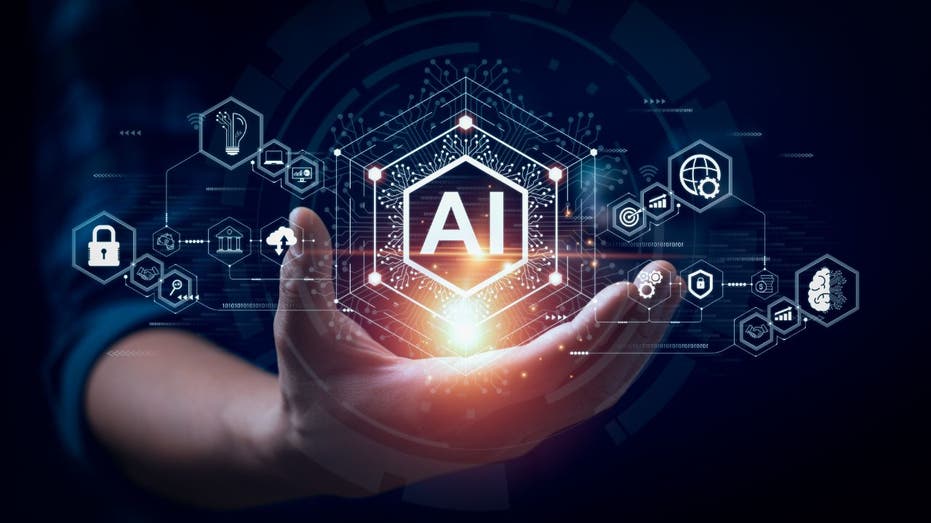Health experts raise concerns over AI apps claiming to be pocket nutrition assistants
Dietitian-nutritionist Alexandra Kaplan says she isn't concerned about the technology replacing humans in her field
How powerful is artificial intelligence?
Vivek Wadhwa discusses artificial intelligence stocks
Calorie counting can be a challenging part of living a healthy lifestyle, and with constant changes coming in the field of A.I., it seems modern technology could soon step up to the plate to make sure what's on your plate is counted more accurately.
Some health experts, however, believe human expertise remains essential, and that, while artificial intelligence may certainly be able to help, it shouldn't replace the role of people in a realm as important – and personal – as nutrition.
BRAIN-BOOSTING SNACKS AT WORK: 5 HEALTHY CHOICES THAT NUTRITIONISTS RECOMMEND
Certain A.I.-powered apps already claim to help out in key areas like coaching and tracking.
HealthifyMe, an India-based nutrition company that offers an app with a "Snap" feature claiming it can track calories and other macronutrients in your food based on photos, is one example reported by the Daily Mail.
The app, in addition to having human experts, also offers a conversational A.I. personal health assistant named Ria that helps people decide what to have for lunch or which workout they should choose.

A person cuts a chicken fillet on a cutting board with a kitchen knife (Fabian Sommer/picture alliance via Getty Images)
A quick app store search also yields results like SnapCalorie A.I. Nutritionist, an app that pledges to be your "smart AI nutritionist" by giving users access to "coaching and feedback" from its A.I. model.
ChatGPT can also help to an extent, giving recipes curated to people's requests and answering health questions as needed. A.I. even powers Samsung's new Bespoke 4-Door Flex Refrigerator with AI Family Hub+1 with a camera that recognizes a number of fresh food items, keeps an inventory of what foods are available inside its doors, and can even suggest recipes with the food you have while taking dietary needs and preferences into account.
WEIGHT LOSS MEDICATION SHORTAGE CREATES MARKET FOR BOGUS DRUGS
Alexandra Kaplan, a dietitian-nutritionist at Core Nutrition based in Westchester, New York, tells Fox News Digital that, if bots designed to assist people in monitoring their food intake can carry out their tasks accurately, it could be beneficial for her practice.
"Assuming it's accurate, it could be very useful because it would help me know the exact portion of what's on the plate and then what's in the food, so it could be helpful for patients to know what they're eating at that meal." she said.
Some of her clients prefer to use other nutrient-tracking apps like Lose It! or MyFitnessPal to monitor their daily food intake. Others prefer to log their food in the notes app on their phones, physically write down the foods they eat, or take pictures of their food.

Artificial intelligence has revolutionized technology, making tasks easier for humans, but also generating concerns that it could someday replace jobs. (Shutthiphong Chandaeng/iStock / iStock)
When she reviews her clients' diets, Kaplan said that photos can be especially challenging to decode since the scale of pictures can be illusive in terms of how large or small the portion size is, so, if A.I. could someday help with decoding photos, it would make the process much easier.
With logging being beneficial overall, Kaplan said if artificial intelligence can eventually give people an accurate, faster way to track their food intake, then the benefits could be greater as people are more likely to stick to their goals.
DOCTORS SAY AI IS A ‘GAME-CHANGER’ FOR NUMBER 1 KILLER OF AMERICANS
"I found in my practice that, when patients log, they do better. It makes them more mindful of what they're eating because they're writing it down or taking a picture. It can actually motivate you better, because then there's the accountability piece there. It can also help me better assess what people are eating, so I can give better suggestions," she explained.
"If A.I. can be an accurate tool for people, it can be helpful for me as well to give better suggestions, because it basically would be a more accurate way of logging."
Artificial intelligence is working ‘in tandem’ with humans to create ‘growth’: Martin Rand
Pactum AI co-founder and CEO Martin Rand joined ‘Mornings with Maria’ to discuss Walmart’s latest decision to use artificial intelligence to negotiate with vendors.
While she believes apps can be a valuable resource in achieving your health goals, she noted that technology can miss some marks that humans can hit.
People with conditions ranging from endocrine disorders like diabetes or metabolic syndrome to digestive issues like celiac disease and irritable bowel syndrome likely need professional advice on keeping track of their nutrients beyond calories, keeping a closer eye on sugar, salt, carbohydrates, or, in some instances, gluten or lactose.
Some might even require medication to tackle their condition and would need to consult a doctor for further advice.
But, with the buzz surrounding the technology, it leaves some industries wondering if A.I. could eventually replace humans in their jobs.
Since humans are far more efficient at helping people achieve their nutritional goals, Kaplan said she isn't concerned.
Artificial intelligence search interest surges amid tech craze
Cleo Capital managing director Sarah Kunst weighs the impact of IPO success on certain companies and discusses artificial intelligence on ‘Making Money.’
"I teach people all the time about how to read a food label. People sometimes think they know how to read the label, but most people do not," Kaplan said. "So I don't think, in that way, A.I. will [help]… It's one thing to get the information, but it's not the same as knowing what to do with it."
She said dietitian-nutritionists can help clients understand what elements of their diets are counting against them, even telling them to swap out certain ingredients for others, or observing how patients are progressing.
"Another thing, [as a nutritionist], you have learned how to motivate a person. When someone comes to us, they could be not so motivated. There are different levels of readiness for making changes, and I think the benefit of working with someone is [that] I have tools that can help to motivate people to make these nutrition changes – because it's one thing for me to just hand out a diet and say, ‘Do this,’ which never works."
"So, I develop techniques in… my practice too, that help people make long-term, realistic lifestyle changes," she added, explaining why she believes human expertise ultimately outweighs A.I.
"Part of my method is working to motivate people and talking to them. Sometimes people are emotional eaters, and figuring out ways to avoid emotional eating and strategies [can help them] make better choices. A computer can't really do anything like that."
CLICK HERE TO READ MORE ON FOX BUSINESS


